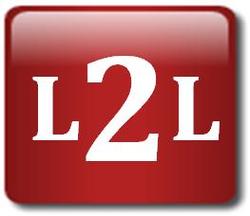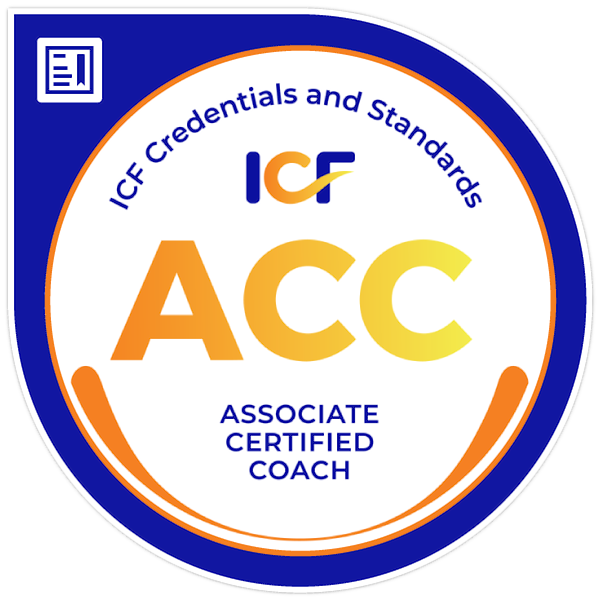What you get by achieving your goals is not as important as what you become by achieving your goals. ZIG ZIGLAR We come to the third and final week of our goal-setting journey here. Previously, we have learned that clearly articulating the why or purpose of a goal, driving commitment to that goal, and creating goals that are specific and measurable that we believe that we can achieve, are strong strategies supported by over 35 years of goal-setting research. Today we turn our attention to the final big moderators of successful goal-setting from the literature: Feedback, task complexity, and satisfaction. Feedback For goals to be the most effective, people need summary feedback that shows them the progress towards reaching their goals. This is connected to the M-measure part of SMART goals. If you don't know how you're doing on your journey towards your goal, it's going to be difficult, if not impossible, to adjust your efforts or your strategies to match what your goal requires. For example, let's imagine that you have a BHAG around communication with your team for the purposes of increasing employee engagement. Let's further imagine that you have created a supporting smaller goal of conducting effective monthly staff/team meetings and that part of that supporting goal is preparing engaging agendas, your regular attendance, establishing and using a rotation of team members who will help you with each month's meeting preparations and facilitation, and a follow-up survey for each meeting. If your not tracking each of those items in some way, how will you know if you're achieving that supporting goal? You can use spreadsheets, to-do lists, dashboards, apps—whatever allows you to track what's important and provides you feedback to let you know how you're doing. Complex goals or BHAGs may require scorecards on which several supporting or sub-goals feed into a total score for the overall BHAG. Let the goal drive what you measure and that can give you the feedback on what timescale(s) you need it (e.g., daily, monthly, etc.). You and your organization are most likely already doing this with metrics for important organizational and department goals, so why not do it for yourself both personally and professionally and for your team goals? Task Complexity For complex tasks, things get a bit trickier. For most goals, people use skills and strategies that they already know how to do—they're more or less automatic or habitualized. But when a task or goal is so complex, that those don't totally serve us and we need to learn new skills and strategies, performance goals actual hinder performance and outcomes. For the most complex goals, the research clearly demonstrates that setting goals about strategy, a learning goal, and/or breaking the complex goal into "proximal" goals—what we've been calling supporting or sub-goals positively impacts outcomes. Remember what we said about telling someone to simply "do their best" and that didn't work? Well, the exception to the rule on that is: Highly complex goals. Take for example research involving an air traffic controller simulation (a highly complex task). When people were given a performance-outcome goal for the simulation, it actually interfered with acquiring the knowledge necessary to perform the task. When people were asked to do their best on the simulation, they performed better. However, when people were given a learning goal rather than a performance goal, those people outperformed everyone else. Can't get no satisfaction? While goals set the target, they also set the standard for satisfaction. Take our example of communication and employee engagement above. When you get feedback from your tracking sheet that you are setting engaging agendas, that your showing up and attending staff meeting regularly, using a variety of team members to help, and the meeting survey results are strong, you feel a strong sense of satisfaction. And if you exceed your expectations and goals? Then satisfaction is even greater, especially if the survey indicates it may be impacting engagement—your ultimate goal. On the flip side of that, if you're not meeting your goals, dissatisfaction grows and that can be used to motivate yourself into action. Some caution here: If you set difficult goals, expect greater dissatisfaction—at least initially. Since the bar is higher, you have a greater gap between current state and future state. It's a difficult and challenging goal. So, your gap between being dissatisfied (current state) and satisfied (future state) is greater, too. Outputs versus outcomes Some people confuse outputs with outcomes when it comes to goal-setting. Outcomes are the events, occurrences, or changes in conditions, behavior, or attitudes that indicate goal success. Outcomes are specific, measurable, preferably simple, and attainable (yet challenging), meaningful, and time-bound. It's what you really, really, want. Outputs are things people do—the milestones or tasks that are part of a change initiative that contribute to achieving the end goal or outcome. While outputs are activities or products of work that support outcomes, outputs will not demonstrate the value of the goal. Take our example supporting goal from above. Having and attending monthly staff meetings are technically outputs. Your outcome expected by successfully hosting and attending monthly staff meetings—the output—is positively impacting the goal or outcome of communication and employee engagement. You don't have staff meetings just to have staff meetings. Similarly, counting how many people attended a training or how many workshops were conducted are outputs. What you want—your outcome, goal, or success measure—is whether they effectively demonstrate a new skill or learning objective. Contacting ten potential clients a day is an output that should impact the outcome or goal of increased sales and revenue. So, while we may measure outputs as part of a journey toward goal achievement, they are not the goal. They support it. And if they don't, then we need to ask why and adjust accordingly. So now that we understand more about effective goal-setting, we can look at it conversely and list some reasons goal-setting oftentimes fails. Some reasons goal-setting fails
Have an amazing journey today! Alan Mikolaj is a coach and leadership development consultant with 15+ years of experience. He is passionate about helping leaders transform their leadership, their teams, and their organizations. Impactful, professional approach driven by a passion for meaning and purpose, a growth mindset, and a commitment to excellence and service in order to drive change and results. Alan maintains the ethics and standards of behavior established by the International Coaching Federation (ICF), including the standards regarding confidentiality. You can learn more about them on the ICF website. Transformational change starts with a conversation! Alan is on a mission to partner with like-minded leaders who want to make a positive difference in the world. Schedule your free, one-hour session by clicking here: Discovery Conversation with Alan Or call or email me: Contact Page
0 Comments
Leave a Reply. |
Alan Mikolaj
Alan Mikolaj is a a professional, experienced, positive, and passionate speaker, leadership and organizational development consultant, change agent, author, and coach. He holds his Master of Arts degree in Clinical Psychology from Sam Houston State University. He is a certified graduate coach from Coaching Out of the Box and holds his ACC and membership with the International Coaching Federation (ICF). Free Discovery Conversation!
Impactful change starts with a conversation! Schedule your free, one-hour session by clicking here: Discovery Conversation with Alan
Or call or email: Contact Page In his third book, A Travel Guide to Leadership, Alan offers you simple, fundamental, and powerful lessons that have the power to transform you, your relationships, and your career.

Blog Archives
July 2024

Linked2Leadership
Ranked #1 Business Blog! |
|
CONTACT
TEL: 346-291-0216 EMAIL: [email protected] SCHEDULE TIME WITH ALAN Free Discovery Conversation with Alan |












